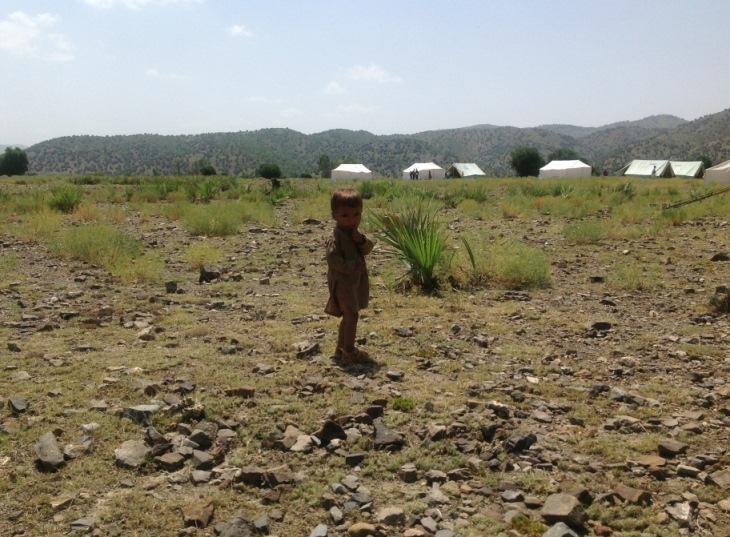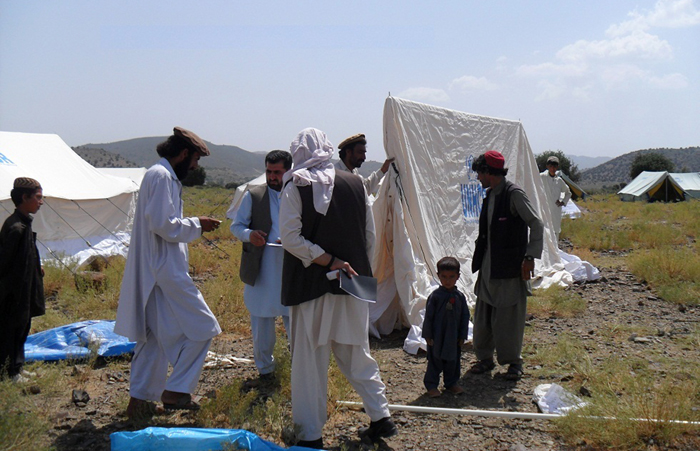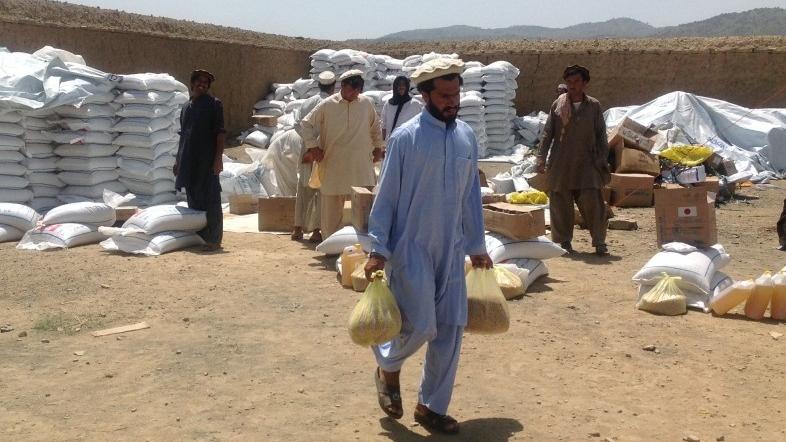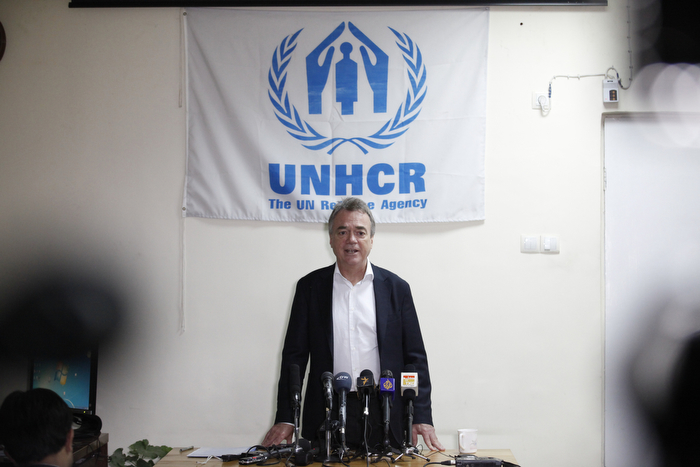KABUL - The United Nations refugee agency has estimated that more than 9,000 families, comprising some 65,000 individuals, have been displaced into the south-eastern Afghan province of Khost following an ongoing large-scale military operation against militants in the bordering North Waziristan region of Pakistan which began earlier this month.
“We have received indications from the entire humanitarian community on the Pakistani side that over 500,000 persons have been displaced, which represents almost the totality of the population in the area,” said the Representative in Afghanistan of the UN High Commissioner for Refugees (UNHCR), Bo Schack, at a news conference in the Afghan capital, Kabul. “It shows that further displacement is expected.”
Mr. Schack added that the movement across the border on the Afghan side has been accommodated very positively by host communities and local authorities, with UN humanitarian agencies providing them with emergency assistance.
The UN official said many of the displaced families are living with their relatives and friends as well as host communities in the districts of Matun, Tanni, Nadir Shah Kot and Mando Zai, and in makeshift camps in the Golan area of Gurbaz district.
The UN agency has estimated that another 2,000 families have arrived in the neighbouring province of Paktika.
In his comments at a news conference in the Afghan capital of Kabul on Thursday, the Representative in Afghanistan of the UN High Commissioner for Refugees (UNHCR), Bo Schack, said the most pressing needs of the displaced families are food, water, sanitation, shelter and, particularly for those in low-lying areas, mosquito nets. Photo: Fardin Waezi / UNAMA
---------------------------------------------------------------------------
“The population is looking at the importance of accommodating this [displaced] population in a way so that it also takes into account the hospitality that they have received on the other side, in Pakistan, over the last several decades,” said Mr. Schack.
Pakistan has hosted millions of Afghan refugees since Afghanistan first experienced cycles of violence in the 1980s. Pakistan currently hosts some 1.6 million registered Afghans, which the UN agency described as “the largest protracted refugee situation globally.” Since March 2002, UNHCR has facilitated the return of 3.8 million registered Afghans from Pakistan “in the world's largest voluntary repatriation operation.”
In the wake of the sudden surge in cross-border movement following Pakistan military offensives, UNHCR’s Assistant Country Representative in Afghanistan, Yumiko Takashima, visited the province last Sunday. During her visit, Ms. Takashima discussed the cross-border movement issue with provincial authorities and assured them of UN humanitarian agencies’ determination to extend assistance to the displaced families.
UNHCR officials have said that they are planning to open an office in Khost province soon to better deal with the situation.
Speaking at today’s news conference, Mr. Schack stressed the need for “urgent humanitarian assistance” to support the displaced families living in the host communities and the temporary camps. He said the most pressing needs of the displaced families are food, water, sanitation, shelter and, particularly for those in low-lying areas, mosquito nets.
A displaced child in a makeshift camp in the Golan area of Gurbaz district, Khost province. Photo: UNHCR
-----------------------------------------------------
UNHCR, in collaboration with the Khost Provincial Department of Refugees and Repatriation (DoRR) and their partners, has conducted needs assessments for more than 3,300 families, in addition to a separate assessment carried out by the Afghan Red Crescent Society of another 2,000 families in Spera district. Mr. Schack said that it is anticipated that there are more families in need in inaccessible areas.
As an immediate response, he continued, UNHCR provided relief materials such as plastic sheets, blankets, tents, jerry cans, kitchen sets, metallic buckets, gas cylinders, bath soap, laundry soap, solar lamps and sanitary cloths to more than 1,100 families, with the further distribution of materials underway.
A UN aid agency, the World Food Programme (WFP), has distributed food assistance – including wheat, pulses, oil, salt and high-energy biscuits – to more than 600 families. Another UN agency, Mr. Schack said, the United Nations Children’s Fund (UNICEF), has provided more than 1,000 medical kits, while the World Health Organization (WHO) has vaccinated so far more than 19,000 children under ten years of age against polio.
The UNHCR official said that the humanitarian response is coordinated and closely monitored through the provincial government and in close cooperation with UN agencies and international organizations.
However, he said that the UN refugee agency is concerned that families close to conflict-affected areas will be further exposed to violence and humanitarian access could be limited.
An estimated 9,000 families have been displaced into the south-eastern Afghan province of Khost following a military operation against militants in neighbouring Pakistan that began earlier this month. Shown here, UN humanitarian agencies in Afghanistan are providing the displaced with emergency relief aid. Photo: UNHCR
--------------------------------------------------------------
Earlier this week, the Governor of Khost Province, Abdul Jabbar Naeemi, made an appeal to the humanitarian community for assistance to the displaced families. Mr. Naeemi also said that a special commission had been established to oversee the activities and distribution of humanitarian assistance to the needy families.







